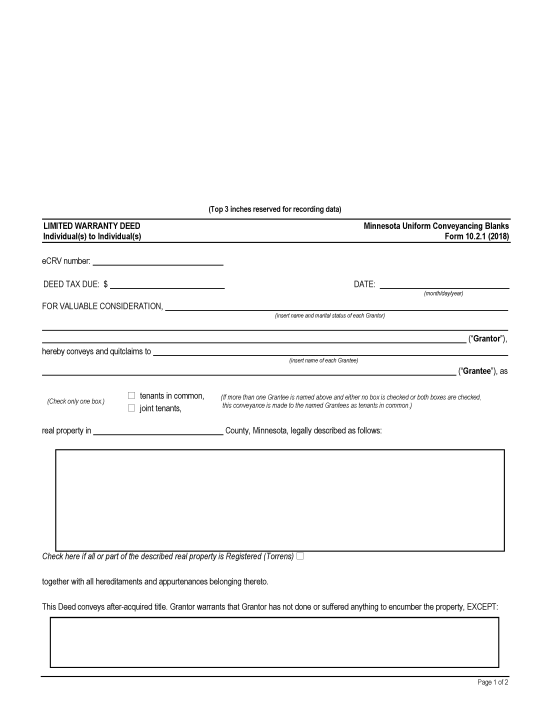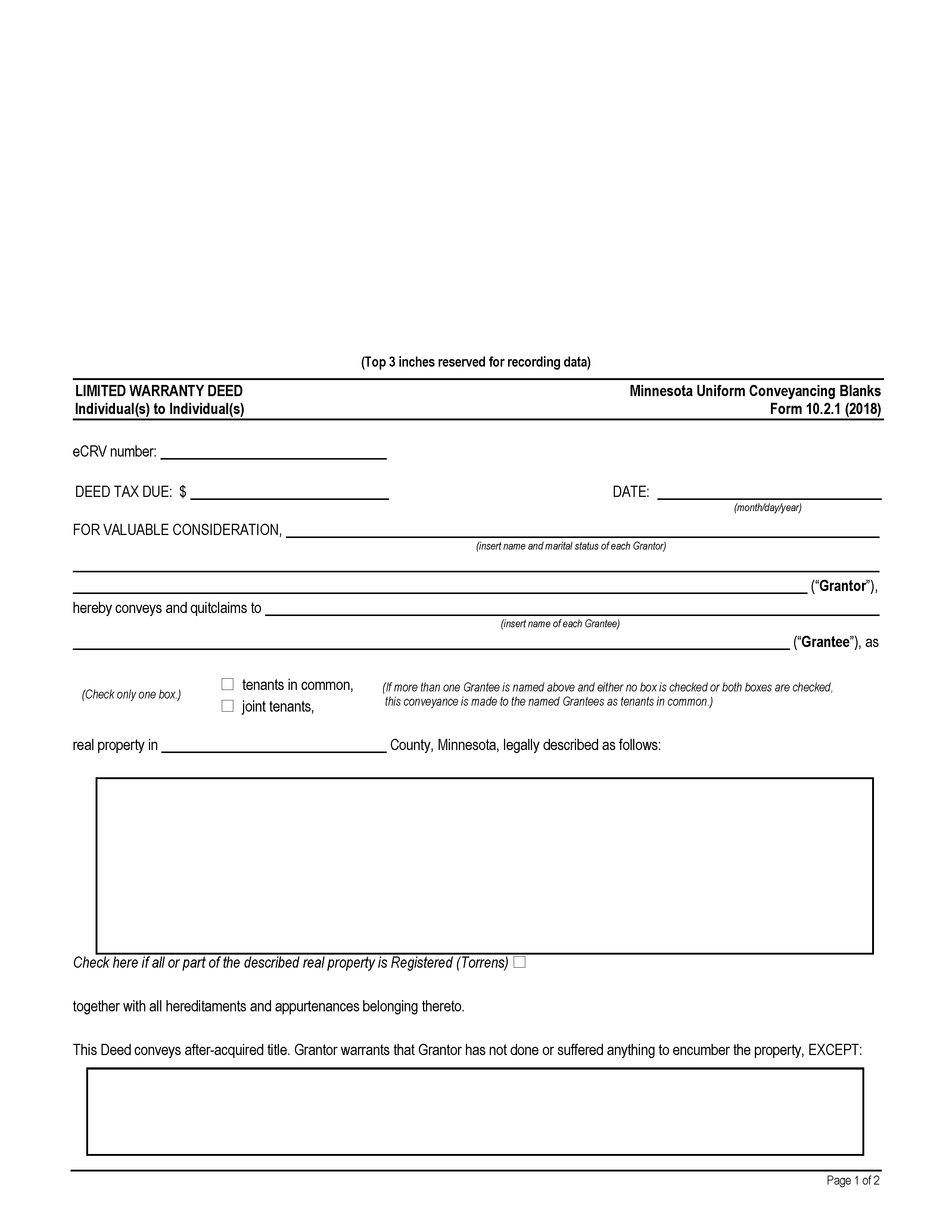Recording Requirements
- The grantor and a notary public must sign the deed.[1]
- There must be a 3″ top margin on the first page. Every other margin must be at least 0.5″.[2]
- The deed must be on white paper of at least 20-pound weight, and not larger than 8.5″ x 14″.
- The font must be black and at least 8pt.
The County Recorder/Registrar of Titles is where deeds are recorded in Minnesota.[3] The recording fee is $46 (as of this writing).[4]
Limited Warranty Deed (Preview)
Additional Forms
Electronic Certificate of Real Estate Value (eCRV) – This certificate must be submitted online before recording the deed if the grantee paid more than $3000 for the property.[5]
Well Disclosure Certificate – This certificate must be filed if the property has one or more wells, unless there have been no changes since the last certificate was filed. Filing can be done online.[6]

